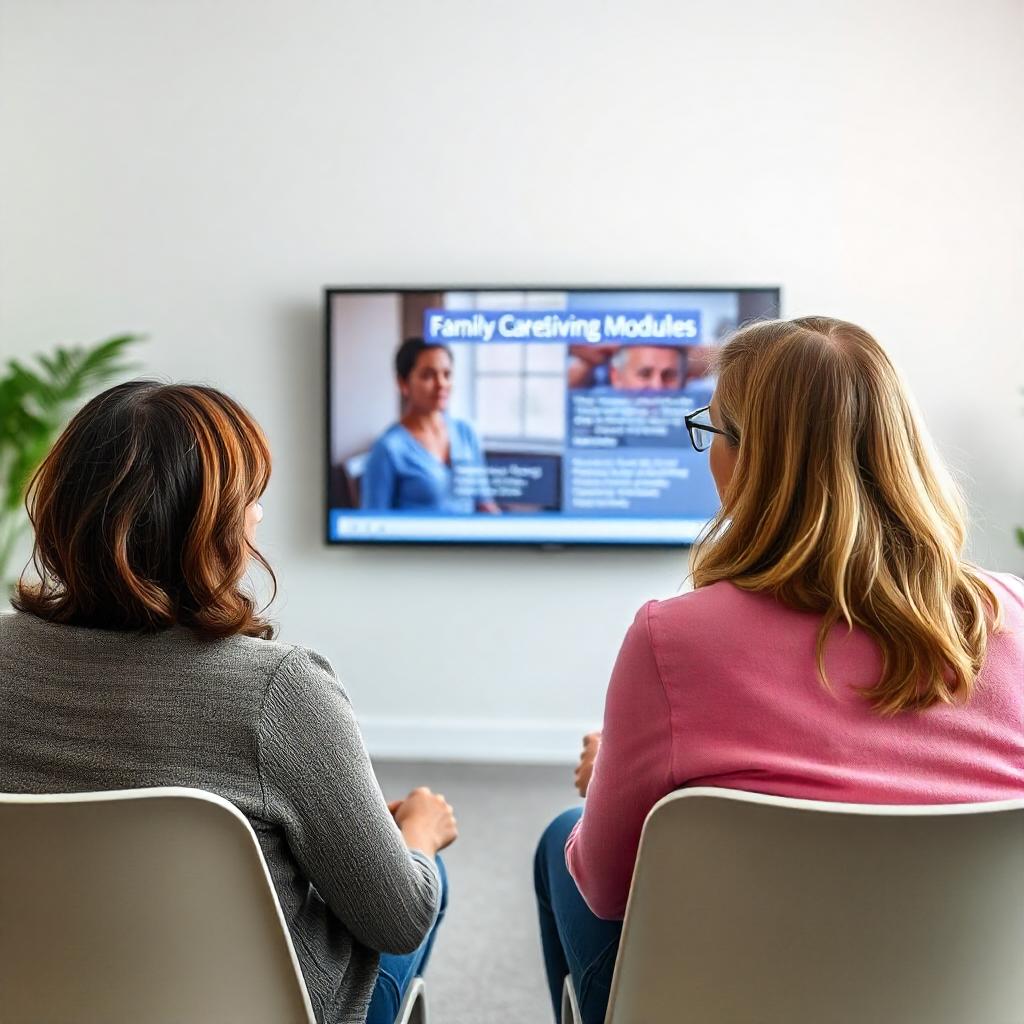Family caregivers play an essential role in the well-being of their loved ones, particularly when it comes to managing chronic illnesses, disabilities, or age-related conditions. However, the responsibility can be overwhelming without the proper training and resources. Family caregiver training modules are designed to equip caregivers with the knowledge, skills, and confidence needed to provide effective, compassionate care while maintaining their own health and well-being.
Key Components of Family Caregiver Training Modules
- Understanding the Caregiver’s Role
- Introduction to Caregiving: Educating family members about the different aspects of caregiving, from physical care to emotional support.
- Setting Realistic Expectations: Discussing the responsibilities of caregiving, including time management, balancing personal life, and knowing when to ask for help.
- Identifying Care Needs: Assessing the physical, emotional, and mental health needs of the person being cared for to create a care plan tailored to them.
- Basic Healthcare and Medical Skills
- Medication Management: Teaching caregivers how to organize medications, understand prescription instructions, and manage side effects or adverse reactions.
- Wound Care and Hygiene: Providing step-by-step guidance on caring for wounds, changing dressings, and maintaining personal hygiene in a way that prioritizes both comfort and dignity.
- Assisting with Mobility: Training caregivers in proper techniques for assisting with mobility, such as transferring a person from a bed to a wheelchair, or helping them walk safely to prevent falls.
- Understanding Medical Terminology: Familiarizing caregivers with key medical terms to effectively communicate with healthcare providers and follow instructions.
- Managing Chronic Conditions
- Alzheimer’s and Dementia Care: Offering strategies for caring for individuals with cognitive decline, including managing memory loss, behavioral changes, and communication difficulties.
- Diabetes Management: Educating caregivers on monitoring blood sugar levels, administering insulin, and recognizing signs of complications.
- Cardiovascular and Respiratory Care: Teaching caregivers about managing heart disease, respiratory conditions, and understanding symptoms of complications such as heart attacks or strokes.
- End-of-Life Care: Providing guidance on offering compassionate end-of-life care, managing pain, and addressing emotional and spiritual concerns during terminal illnesses.
- Caregiving Techniques and Practices
- Effective Communication: Focusing on the importance of clear, compassionate communication, particularly with individuals who have cognitive impairments or hearing difficulties.
- Caring for Mental and Emotional Health: Teaching caregivers how to recognize signs of depression, anxiety, and stress in both themselves and the person they are caring for, along with coping strategies.
- Handling Behavioral Issues: Providing strategies for managing challenging behaviors such as agitation, aggression, or resistance to care, particularly in individuals with dementia or Alzheimer’s disease.
- Managing Personal Care: Training on how to assist with daily activities such as bathing, dressing, feeding, and toileting while preserving dignity.
- Legal and Financial Information
- Legal Rights and Responsibilities: Educating caregivers on legal issues like power of attorney, living wills, and guardianship, and their role in managing the patient’s affairs.
- Financial Planning and Assistance: Discussing how to manage the financial aspects of caregiving, including budgeting, handling insurance claims, and accessing government benefits or community resources.
- Navigating Healthcare Systems: Guiding caregivers on how to work with healthcare providers, schedule appointments, and advocate for the care needs of their loved ones.
- Self-Care for Caregivers
- Stress Management Techniques: Teaching caregivers how to manage stress through relaxation techniques such as deep breathing, mindfulness, and meditation.
- Avoiding Caregiver Burnout: Discussing the importance of setting boundaries, asking for help, and recognizing the signs of burnout.
- Building a Support Network: Encouraging caregivers to seek support from other family members, friends, or caregiver support groups to avoid isolation.
- Maintaining Personal Health: Offering tips on prioritizing physical and emotional health, including regular exercise, balanced nutrition, and maintaining sleep patterns.
- Technology and Resources
- Assistive Technology: Training caregivers to use technology such as medication reminders, health monitoring devices, and personal emergency response systems (PERS) to improve care.
- Online Resources and Tools: Providing information about online tools, forums, and platforms where caregivers can find advice, connect with others, or access caregiving resources.
- Respite Care Services: Educating caregivers about respite care options that provide temporary relief, allowing them to rest and recharge.
Benefits of Family Caregiver Training Modules
- Improved Quality of Care: Caregivers who are well-trained are better equipped to manage the physical, emotional, and psychological needs of their loved ones, resulting in more effective care.
- Enhanced Confidence: Proper training helps caregivers feel more confident in their ability to provide care, which reduces anxiety and increases overall satisfaction.
- Reduced Caregiver Stress: Knowledge and skills gained through training allow caregivers to handle challenging situations with greater ease and resilience.
- Better Communication: Training in communication techniques leads to better interactions with healthcare professionals, ensuring that caregivers can advocate for their loved one’s needs.
- Prevention of Burnout: By learning stress management strategies and self-care techniques, caregivers can reduce the risk of physical and emotional exhaustion.
- Empowerment and Support: Family caregiver training modules provide a sense of empowerment, giving caregivers the tools they need to perform their role while also fostering connections with other caregivers for mutual support.
Delivery of Family Caregiver Training Modules
- In-Person Workshops: Local healthcare facilities or community centers may offer hands-on workshops where caregivers can receive face-to-face training and ask questions.
- Online Courses: Many organizations offer online modules, webinars, and videos that allow caregivers to complete training at their own pace and from the comfort of their own homes.
- Printed Materials: Caregivers can receive instructional books, pamphlets, and guides that outline key caregiving techniques and resources for further support.
- Interactive Platforms: Some training providers offer interactive platforms where caregivers can learn through role-playing scenarios, virtual simulations, or group discussions.
Family caregiver training modules are a valuable resource for families who are stepping into caregiving roles, providing them with essential skills and support to navigate the complexities of caregiving while maintaining their own well-being. With proper training, caregivers can offer better care, avoid burnout, and ensure that their loved ones receive the best possible support.
